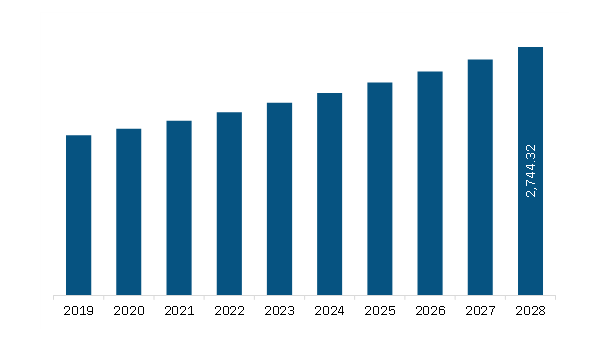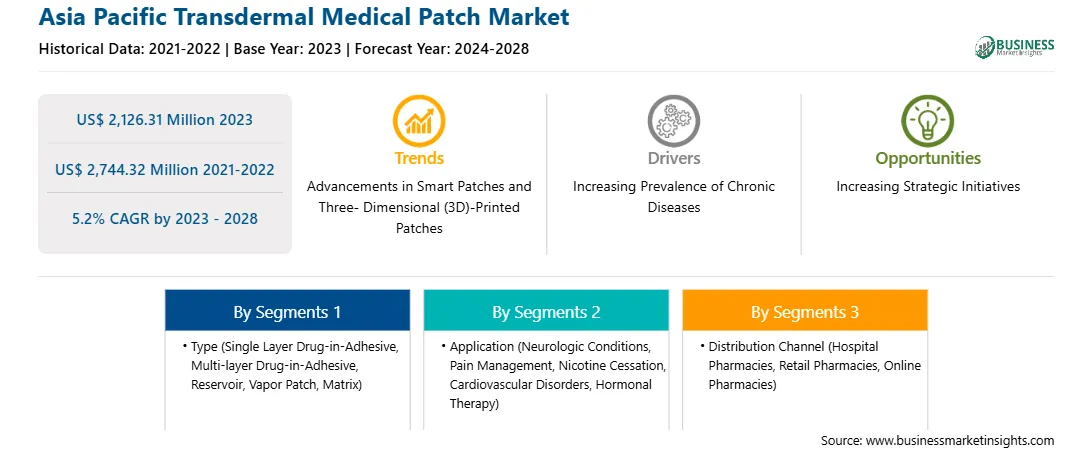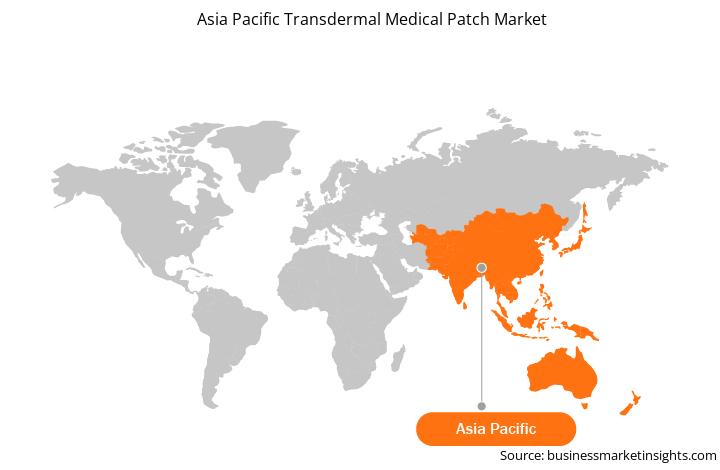The transdermal drug administration route is novel and one of the reliable means of sustained drug delivery. With significant research being carried out in this field and increasing interest of researchers in this form of drug delivery, the number of transdermal patches reaching the marketplace is expected to rise sharply. Transdermal patches have attracted attention for decades and were used to deliver drugs such as nicotine, fentanyl, nitroglycerin, and clonidine to treat various diseases or conditions.
According to a study titled "A smart hydrogel patch with high transparency, adhesiveness, and hemostasis for all-round treatment and glucose monitoring of diabetic foot ulcers," published in 2022, scientists have developed an intelligent patch to monitor and treat diabetic foot ulcers. This system is fabricated from conductive hydrogel patches with an ultra-high transparency polymer network.
Researchers are using 3D printing technology to create customized transdermal patches (e.g., a 3D-printed patch for wound healing) tailored as per patient's needs. In a study by Jang et al. titled "Gelatin Methacrylate Hydrogel for Tissue Engineering Applications—A Review on Material Modifications," published in 2022, gelatin methacrylate (GelMA) was tested as a viable option with tunable physical properties. GelMA hydrogel incorporating a vascular endothelial growth factor (VEGF)-mimicking peptide was successfully printed using a 3D bio-printer due to the hydrogel inks' shear-thinning properties. The 3D structure of the hydrogel patch had high porosity and water absorption properties. Slowly released from hydrogel patches, VEGF peptide can promote cell viability, proliferation, and tubular structure formation, indicating that the 3D Gel-MA-VEGF hydrogel patch can be used for wound dressing.
In this study, two liquid monomers—polyethylene glycol diacrylate (PEGDA) and vinylpyrrolidone (VP)—in different proportions were used to improve the mechanical strength, polymerization rate, and swelling rate of the final polymer. Optimal drug loading on the resin indicated that AHP-3 remained stable throughout the manufacturing process and had no effect on the physical properties of the final polymer. Using a 3D scanned facial model, a personalized patch was designed in computer-aided design software and fabricated in optimized resin using a digital light processing 3D printer. In vitro characterization of the prepared transdermal patches showed their ability to penetrate human cadaver skin, and they remained intact after compression.
The transdermal medical patch market in Asia Pacific is segmented into Australia, China, India, Japan, South Korea, and the Rest of Asia Pacific. The regional growth is attributed to growing research on cancer and gene mutations, increasing disease modeling, and developments by market players offering transdermal medical patch. Factors such as developing healthcare facilities, growing aging population to share key facts associated with stem cell technologies, and increasing partnerships with foreign entities are likely to further propel the market growth during the forecast period.

Strategic insights for the Asia Pacific Transdermal Medical Patch provides data-driven analysis of the industry landscape, including current trends, key players, and regional nuances. These insights offer actionable recommendations, enabling readers to differentiate themselves from competitors by identifying untapped segments or developing unique value propositions. Leveraging data analytics, these insights help industry players anticipate the market shifts, whether investors, manufacturers, or other stakeholders. A future-oriented perspective is essential, helping stakeholders anticipate market shifts and position themselves for long-term success in this dynamic region. Ultimately, effective strategic insights empower readers to make informed decisions that drive profitability and achieve their business objectives within the market.

| Report Attribute | Details |
|---|---|
| Market size in 2023 | US$ 2,126.31 Million |
| Market Size by 2028 | US$ 2,744.32 Million |
| Global CAGR (2023 - 2028) | 5.2% |
| Historical Data | 2021-2022 |
| Forecast period | 2024-2028 |
| Segments Covered |
By Type
|
| Regions and Countries Covered | Asia-Pacific
|
| Market leaders and key company profiles |
The geographic scope of the Asia Pacific Transdermal Medical Patch refers to the specific areas in which a business operates and competes. Understanding local distinctions, such as diverse consumer preferences (e.g., demand for specific plug types or battery backup durations), varying economic conditions, and regulatory environments, is crucial for tailoring strategies to specific markets. Businesses can expand their reach by identifying underserved areas or adapting their offerings to meet local demands. A clear market focus allows for more effective resource allocation, targeted marketing campaigns, and better positioning against local competitors, ultimately driving growth in those targeted areas.

The Asia Pacific transdermal medical patch market is segmented into type, application, distribution channel, and country.
Based on type, the Asia Pacific transdermal medical patch market is segmented into single-layer drug in-adhesive, multi-layer drug in-adhesive, reservoir, vapor patch, and matrix. The matrix segment registered the largest market share in Asia Pacific transdermal medical patch market in 2023.
Based on application, the Asia Pacific transdermal medical patch market is segmented into neurologic conditions, pain management, nicotine cessation, cardiovascular disorders, hormonal therapy, and others. The pain management segment held the largest market share in 2023.
Based on distribution channel, the Asia Pacific transdermal medical patch market is segmented into hospital pharmacies, retail pharmacies, and online pharmacies. The hospital pharmacies segment held the largest market share in 2023.
Based on country, the Asia Pacific transdermal medical patch market is segmented into Australia, China, India, Japan, South Korea, and the Rest of Asia Pacific. Japan dominated the market share in 2022.
Boehringer Ingelheim International GmbH, Endo International Inc, Hisamitsu Pharmaceutical Co Inc, Johnsons and Johnsons, Medline Industries LP, Novartis AG, Teva Pharmaceutical Industries Ltd., and Viatris Inc are the leading companies operating in the transdermal medical patch market in the region.
The Asia Pacific Transdermal Medical Patch Market is valued at US$ 2,126.31 Million in 2023, it is projected to reach US$ 2,744.32 Million by 2028.
As per our report Asia Pacific Transdermal Medical Patch Market, the market size is valued at US$ 2,126.31 Million in 2023, projecting it to reach US$ 2,744.32 Million by 2028. This translates to a CAGR of approximately 5.2% during the forecast period.
The Asia Pacific Transdermal Medical Patch Market report typically cover these key segments-
The historic period, base year, and forecast period can vary slightly depending on the specific market research report. However, for the Asia Pacific Transdermal Medical Patch Market report:
The Asia Pacific Transdermal Medical Patch Market is populated by several key players, each contributing to its growth and innovation. Some of the major players include:
The Asia Pacific Transdermal Medical Patch Market report is valuable for diverse stakeholders, including:
Essentially, anyone involved in or considering involvement in the Asia Pacific Transdermal Medical Patch Market value chain can benefit from the information contained in a comprehensive market report.